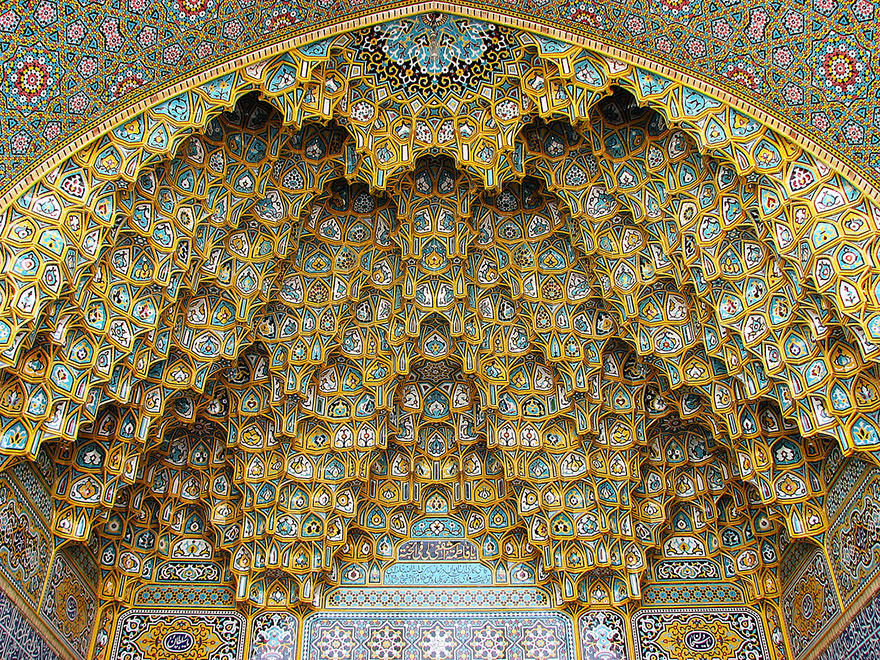FWP:
SETS == KYA
This is the beginning of a four-verse verse-set. It's a very real and strongly marked verse-set, too. This verse is the conceptual key to it, and poses the basic question; the following three verses add additional, powerful evidence of the (apparent) multiplicity and (genuine) attraction of the real (?) world.
The word hangāmah is wonderfully apt-- every one of its meanings (see the definition above) works, and adds another layer to the question posed in the verse.
This verse-- and by extension, this verse-set-- seems to be addressed not to a human beloved but clearly to God. For more such examples, see {20,10}. The speaker is using a rhetorical device called 'feigned ignorance': he makes a great show of naive perplexity.
The rest of the verses in this set are even more radically inshāʾiyah . They can be read either as sincerely interrogative ('Tell me, God, about these beauties of the phenomenal world'), or as admiringly exclamatory ('For things that don't exist, they're pretty phenomenal!'), or as derogatory ('What's the point of all this fake and superficial clamor?'). Needless to say, all three readings work beautifully with the basic question posed by the verse-set.
On the flexibility of jab kih , see {53,8}.
Compare the unpublished {424x,7}, which similarly plays with questions of existence or ownership of the self, and which might even be read as accusing the Lord of a veiled form of 'self-worship'.
Compare Mir's equally mystical and faux-naïf M{70,4}.

Nazm:
This verse-set is a complaint that during the movement of this interesting and captivating commotion, how can a person find the inner tranquility to consider it contemptible and turn his attention to the presence of the Truth? This mirage-like appearance has made us so absorbed that we've washed our hands of the search for the sea itself. The complaint is that we want to consider the pleasure of the world contemptible and and pay no attention to it, but its captivatingness doesn't cease to pursue us. (175)
== Nazm page 174; Nazm page 175